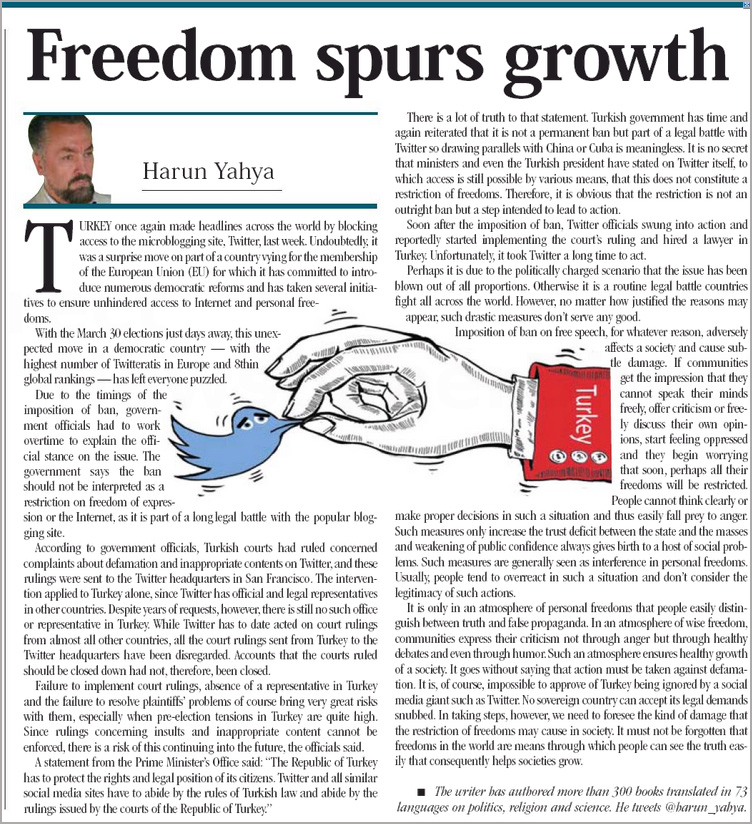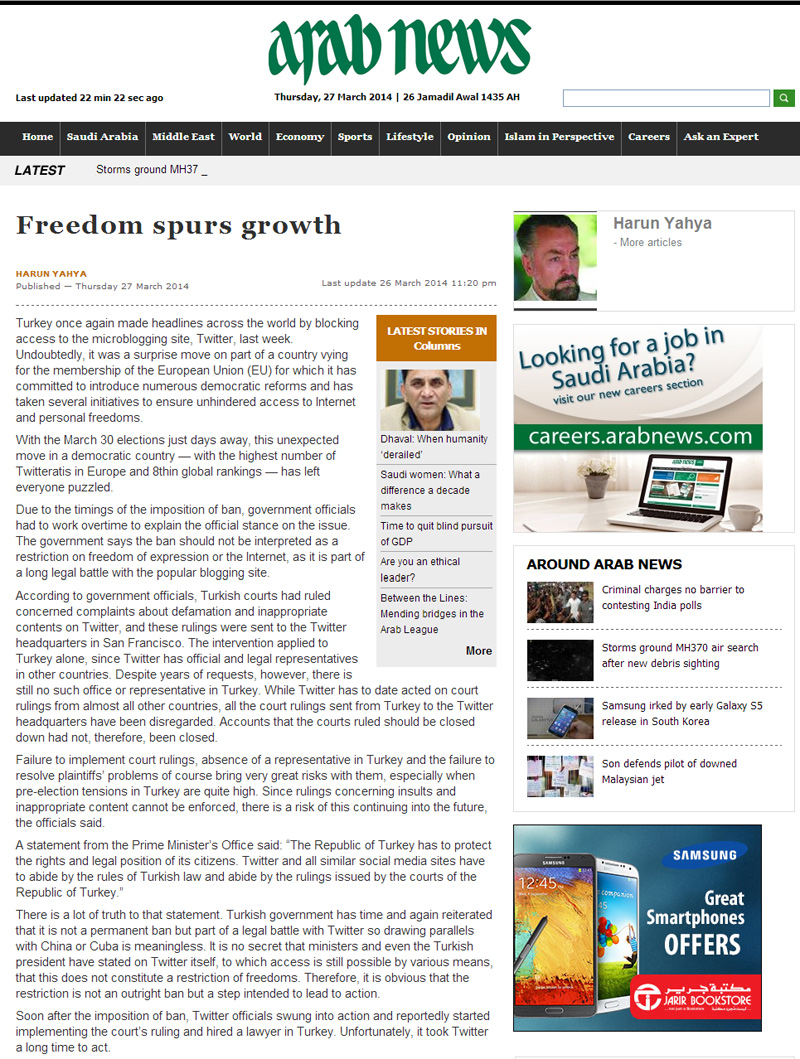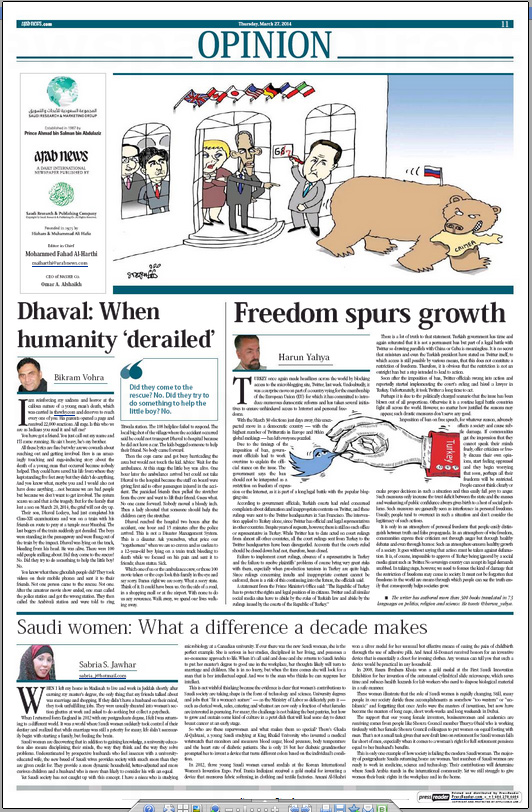


Turkey once again made headlines across the world by blocking access to the microblogging site, Twitter, last week. Undoubtedly, it was a surprise move on part of a country vying for the membership of the European Union (EU) for which it has committed to introduce numerous democratic reforms and has taken several initiatives to ensure unhindered access to Internet and personal freedoms.
With the March 30 elections just days away, this unexpected move in a democratic country — with the highest number of Twitteratis in Europe and 8thin global rankings — has left everyone puzzled.
Due to the timings of the imposition of ban, government officials had to work overtime to explain the official stance on the issue. The government says the ban should not be interpreted as a restriction on freedom of expression or the Internet, as it is part of a long legal battle with the popular blogging site.
According to government officials, Turkish courts had ruled concerned complaints about defamation and inappropriate contents on Twitter, and these rulings were sent to the Twitter headquarters in San Francisco. The intervention applied to Turkey alone, since Twitter has official and legal representatives in other countries. Despite years of requests, however, there is still no such office or representative in Turkey. While Twitter has to date acted on court rulings from almost all other countries, all the court rulings sent from Turkey to the Twitter headquarters have been disregarded. Accounts that the courts ruled should be closed down had not, therefore, been closed.
Failure to implement court rulings, absence of a representative in Turkey and the failure to resolve plaintiffs’ problems of course bring very great risks with them, especially when pre-election tensions in Turkey are quite high. Since rulings concerning insults and inappropriate content cannot be enforced, there is a risk of this continuing into the future, the officials said.
A statement from the Prime Minister’s Office said: “The Republic of Turkey has to protect the rights and legal position of its citizens. Twitter and all similar social media sites have to abide by the rules of Turkish law and abide by the rulings issued by the courts of the Republic of Turkey.”
There is a lot of truth to that statement. Turkish government has time and again reiterated that it is not a permanent ban but part of a legal battle with Twitter so drawing parallels with China or Cuba is meaningless. It is no secret that ministers and even the Turkish president have stated on Twitter itself, to which access is still possible by various means, that this does not constitute a restriction of freedoms. Therefore, it is obvious that the restriction is not an outright ban but a step intended to lead to action.
Soon after the imposition of ban, Twitter officials swung into action and reportedly started implementing the court’s ruling and hired a lawyer in Turkey. Unfortunately, it took Twitter a long time to act.
Perhaps it is due to the politically charged scenario that the issue has been blown out of all proportions. Otherwise it is a routine legal battle countries fight all across the world. However, no matter how justified the reasons may appear, such drastic measures don’t serve any good.
Imposition of ban on free speech, for whatever reason, adversely affects a society and cause subtle damage. If communities get the impression that they cannot speak their minds freely, offer criticism or freely discuss their own opinions, start feeling oppressed and they begin worrying that soon, perhaps all their freedoms will be restricted. People cannot think clearly or make proper decisions in such a situation and thus easily fall prey to anger. Such measures only increase the trust deficit between the state and the masses and weakening of public confidence always gives birth to a host of social problems. Such measures are generally seen as interference in personal freedoms. Usually, people tend to overreact in such a situation and don’t consider the legitimacy of such actions.
It is only in an atmosphere of personal freedoms that people easily distinguish between truth and false propaganda. In an atmosphere of wise freedom, communities express their criticism not through anger but through healthy debates and even through humor. Such an atmosphere ensures healthy growth of a society. It goes without saying that action must be taken against defamation. It is, of course, impossible to approve of Turkey being ignored by a social media giant such as Twitter. No sovereign country can accept its legal demands snubbed. In taking steps, however, we need to foresee the kind of damage that the restriction of freedoms may cause in society. It must not be forgotten that freedoms in the world are means through which people can see the truth easily that consequently helps societies grow.
Adnan Oktar's article on Arab News:


